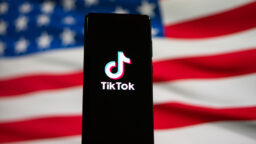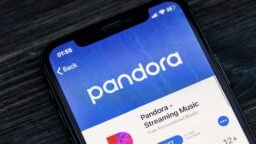A US-based lobbying group co-founded by Google and Pandora that aims to drive down royalties paid to songwriters and artists has suffered another high-profile member exit.
Pressure has been building on public US broadcaster NPR, a long-time friend of the music business, ever since Amazon quit the MIC Coalition in June.
At the time, Amazon‘s VP of digital music, Steve Boom said: “When we joined the coalition we had a particular agenda topic that we were interested in, and that was transparency.
“What has become clear to us since MIC went public is that part of the agenda – transparency – is getting lost in the wilder noise surrounding rate-setting.”
It appears that NPR has woken up to this idea, despite MIC’s claim to be fighting laws that “stifle innovation to the detriment of consumers and artists”.
Two pressure groups opposed to the MIC Coalition – The Content Creators Coalition and musicFIRST – have both welcomed NPR’s decision.
MusicFIRST Coalition Executive Director Ted Kalo said: “When Amazon took the lead and left this anti-artist Coalition, after concluding the group was ‘consumed’ with lowering payments to musicians, musicFIRST called on NPR to leave as well, arguing that their association with them went against their strong record as both a partner to artists and a supporter of great music.
“We applaud NPR for its willingness to listen and engage in a dialogue with musicians’ advocates.”
Ted Kalo, MusicFIRST
“Today, we applaud NPR for its willingness to listen and engage in a dialogue with musicians’ advocates. And we commend NPR’s decision to leave the MIC Coalition, separating itself from both the Coalition and its anti-artist agenda.
“This is just the latest example of the rising power of music creators who have truly found their voice in the debate over making the music economy more just and more fair. The rising tide of support for the Fair Play Fair Pay Act, especially during the music community’s “Week of Action,” is living proof of how far we have come.
“We are grateful to NPR for listening to the voices of artists and music creators, and choosing to take a brave stand by ending their membership in the MIC Coalition.
“We look forward to music creators resuming their longstanding partnership with NPR as a result.”
MIC Coalition was born in April with a mission, amongst other things, to stop publishers winning the right to negotiate digital performance revenues directly with digital services in the US.
Its most controversial stated aim was to drive down money paid to artists and labels by the likes of Pandora.
New rates are due to be set by the US Copyright Royalty Board later this year.
In addition, it wants to block attempts by Fair Play, Fair Pay movement to get artists and labels recompensed when their music is played on US terrestrial radio.
MIC argues: “If those rates are too high, Internet radio streaming could become unsustainable and those services could be driven out of business.
“As a result consumers and businesses that play music would have fewer choices in the marketplace.”Music Business Worldwide




